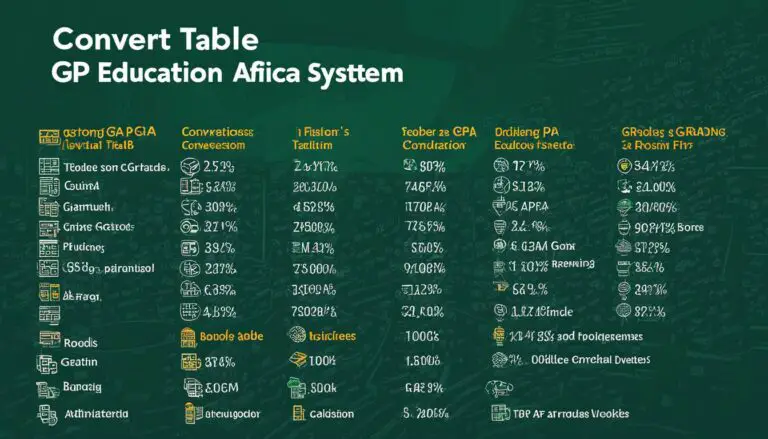CELTA Certification Guide: Start Your TEFL Career
Welcome to our guide on getting your CELTA – the first step to becoming an excellent English teacher! CELTA is the go-to choice whether you’re just starting or want to boost your teaching skills.
We’ll show you why CELTA rocks and what the program is about and help you decide if it’s your thing. We’ve got the scoop on how the course works to land an excellent job.
Find out who can benefit – if you’re new, a pro wanting to get even better, or speak English like a champ but aren’t a native. We’ll discuss online, in-person, and mixed options, plus what it costs and how to pick the right one.
Let’s compare CELTA with other teaching gigs like TEFL and TESOL to see why CELTA shines in the ESL job market.
Ready to become a fantastic ESL teacher with CELTA? Let’s dive in and open the door to your excellent teaching journey!
Understanding CELTA: The Gold Standard in TEFL Certification
What is CELTA?
The CELTA, short for Certificate in English Language Teaching to Adults, is a well-known and respected qualification for teaching English.
Created and given by Cambridge Assessment English, the CELTA program gives people the skills and knowledge they need to be great at teaching English to non-native speakers.
Whether you’re a recent graduate or a working professional looking to switch careers, the CELTA certification offers a comprehensive training program that combines theory and practical teaching experience to prepare you for the classroom environment.
The CELTA certification is suitable for those with no previous teaching experience and experienced teachers who want to enhance their skills or pursue opportunities in English language teaching.
The program provides a solid foundation in teaching methodologies, lesson planning, language analysis, and classroom management.
Why CELTA is the Most Recognized English Teaching Qualification
The CELTA program is accredited by Ofqual (Office of Qualifications and Examinations Regulation) in the United Kingdom, making it globally recognized and ensuring its quality and consistency.
🌟 Hey Students! 🚀 Ready for the ultimate experience? Join us on Studentsinside.com's Facebook, YouTube, WhatsApp, and LinkedIn. Click now for tips, fun, and success vibes! 🌈✨ #StudentLife #JoinUs
The CELTA certification is sought by language schools, international schools, and institutions worldwide, giving you a competitive edge in the job market.
Employers value CELTA graduates because they have the knowledge and practical skills to deliver effective English language lessons.
The program focuses on hands-on learning. You’ll get to practice teaching and observe others, all with the help of experienced tutors.
The Structure and Content of a CELTA Program
The CELTA program typically consists of intensive training over four weeks, although part-time options are also available.
The program offers a balanced blend of theory and practical application, ensuring you are well-prepared to enter the classroom as a confident and competent teacher.
| Structure | Content |
|---|---|
| Theory Sessions |
|
| Teaching Practice |
|
| Written Assignments |
|
The structure of the CELTA program ensures that you develop a strong foundation in teaching methodology, classroom management, and effective lesson planning.
The teaching practice component allows you to apply your learning in a supportive environment, receiving valuable feedback from tutors and peers to enhance your teaching skills.
Who Can Benefit from Earning a CELTA Certification?
CELTA for Aspiring ESL Educators with No Prior Experience
Aspiring ESL educators new to teaching English as a foreign language can significantly benefit from earning a CELTA certification.
CELTA gives you complete training and hands-on teaching practice. It helps you get the skills and confidence needed to enter the classroom.
The rigorous program covers various teaching techniques, lesson planning, language analysis, and classroom management strategies, ensuring that new educators are well-prepared to effectively engage and support their students.
Experienced Teachers Looking to Refine Their Skills
Experienced teachers in the field can also benefit from a CELTA certification. CELTA offers teachers a structured and intensive learning experience to enhance their knowledge and skills.
Through the program, teachers can deepen their understanding of language teaching methodologies, explore new approaches, and gain valuable feedback on their teaching practices.
CELTA can help experienced educators stay up-to-date with the latest innovations and best practices in English language teaching.
The International Appeal of CELTA for Non-Native English Speakers
CELTA is an excellent choice for people who speak English but aren’t native speakers. It’s well-known globally, and bosses everywhere respect it.
This means non-native English speakers can use CELTA to show they’re excellent teachers, even if English isn’t their first language.
CELTA gives non-native English speakers the skills and confidence they need to teach English well. It prepares them to work with students from different languages and cultures.
Various CELTA Course Formats: Tailoring Your Experience
Choosing Between Online, In-Person, or Hybrid CELTA Courses
One of the first decisions you’ll face when selecting a CELTA course is choosing between online, in-person, or hybrid options. Each format offers unique advantages and considerations, allowing you to find the most suitable learning environment.
Online CELTA courses are a great way to study from anywhere globally. You can easily access course materials and connect online with tutors and fellow trainees. This format benefits those with busy schedules or limited access to in-person training centers.
In-person CELTA courses offer face-to-face interaction with experienced trainers and classmates. This format provides a more immersive learning experience and facilitates immediate feedback and support. It is precious for individuals who prefer hands-on learning and thrive in a classroom setting.
Hybrid CELTA courses combine online and in-person components, balancing flexibility and real-time engagement.
This format lets you complete theoretical coursework online and participate in in-person practical teaching practice sessions. Hybrid courses are ideal for those who desire a blended learning experience.
Understanding the Time Commitment: Full-Time vs. Part-Time
When picking a CELTA course, it’s essential to think about how much time you can commit. You can choose between full-time and part-time CELTA programs. You can match your studies with your other responsibilities and priorities.
If you can devote your full attention to the course, a full-time CELTA program offers an intensive and immersive experience. This format typically lasts four to five weeks, allowing you to complete the certification quickly and fully immerse yourself in the learning process.
On the other hand, a part-time CELTA program might be more suitable if you have other responsibilities, such as work or family obligations.
Part-time programs are spread over a more extended period, typically two to three months. This format lets you balance your studies with other commitments and maintain a more flexible schedule.

| Format | Advantages |
|---|---|
| Online CELTA | – Flexibility to study from anywhere |
| In-Person CELTA | – Face-to-face interaction with trainers and peers – Immediate feedback and support |
| Hybrid CELTA | – Blended learning experience – Online convenience with in-person teaching practice |
| Full-Time CELTA | – Intensive and immersive learning |
| Part-Time CELTA | – Flexibility to balance with other commitments |
The CELTA Certification Process and Requirements
To obtain a CELTA certification, candidates must undergo a specific process and meet certain requirements. This section will overview the CELTA certification process and the criteria candidates must fulfill.
Age and Educational Criteria for CELTA Candidates
Candidates applying for a CELTA course must be at least 18 years old. There is no upper age limit as long as candidates can demonstrate the skills and capabilities required for successful completion.
In terms of educational criteria, candidates are expected to have a level of education equivalent to that required for entry into higher education. This typically means having completed high school or secondary education.
English Proficiency Expectations for Non-Native Speakers
As CELTA is an English language teaching qualification, non-native speakers can apply. However, they must demonstrate a high level of English proficiency.
Non-native English speakers are usually required to demonstrate their proficiency in the language. This is commonly done by taking a recognized test such as IELTS or TOEFL to provide evidence of their English language abilities.
The specific English proficiency requirements may vary depending on the country or institution offering the CELTA course.
Practical Components of The CELTA Course
The CELTA course’s practical components are crucial in preparing aspiring ESL teachers for their future classrooms.
These hands-on experiences provide valuable opportunities for trainees to apply their knowledge, develop teaching skills, and gain confidence in their abilities.
One of the critical practical components of the CELTA course is teaching practice. Trainees have the chance to plan and deliver English lessons to real students, allowing them to put their lesson-planning skills into action.
This component provides invaluable insights into classroom dynamics, student engagement, and effective teaching strategies.
Trainees also receive feedback from experienced trainers and peers, helping them identify areas of improvement and refine their teaching techniques. This constructive feedback is instrumental in enhancing their teaching skills and understanding the learning process.
Additionally, trainees learn about the importance of lesson planning during the CELTA course. They acquire the skills to design well-structured and engaging lessons that cater to the needs of their students. Lesson planning helps teachers deliver practical, organized lessons that maximize student learning outcomes.
Throughout the course, trainees can observe experienced teachers in action. These observations allow them to learn from professionals and gain insights into different teaching styles and strategies.
The practical components of the CELTA course provide trainees with a comprehensive foundation in teaching English as a foreign language.
Aspiring ESL teachers develop the skills and confidence necessary to succeed in the classroom through teaching practice, lesson planning, and observation.
CELTA Jobs: Opportunities and Prospects Post-Certification
After obtaining your CELTA certification, a world of teaching opportunities and promising job prospects awaits.
The global recognition of CELTA opens doors to diverse teaching positions worldwide, allowing you to embark on a fulfilling career in teaching English as a foreign language.
Let’s explore the various aspects of CELTA jobs and what employers expect from CELTA graduates.
Global Recognition and Diverse Teaching Opportunities
The CELTA certification is highly regarded internationally, making it a valuable qualification for ESL teachers.
With its widespread recognition, you can confidently apply for teaching positions in countries across the globe, ranging from bustling cities to exotic destinations.
Whether you aspire to teach in Europe, Asia, Africa, or the Americas, CELTA equips you with the necessary skills and knowledge to succeed in a multicultural classroom.

Understanding Employer Expectations for CELTA Graduates
Employers in the ESL industry hold CELTA graduates in high regard due to the rigorous and comprehensive nature of the program.
They look for specific key attributes when hiring teachers with a CELTA certification. These expectations typically include:
- A strong command of the English language
- Effective classroom management skills
- Proficiency in lesson planning and curriculum development
- The ability to adapt teaching methods to meet the needs of diverse learners
- Excellent communication and interpersonal skills
Exploring ESL Job Prospects
The demand for qualified ESL teachers continues to grow across the globe. With a CELTA certification, you can explore various teaching opportunities, including positions in language schools, international schools, universities, and corporate language training programs.
These roles may involve teaching adults, young learners, or specific English language proficiency exams such as IELTS or TOEFL.
Moreover, CELTA graduates frequently get chances to advance in their careers, stepping into leadership roles like teacher training or curriculum development. With a CELTA certification, the possibilities are limitless.
| Benefits of CELTA Jobs | Challenges of CELTA Jobs |
|---|---|
| Competitive salaries | Adapting to different cultural contexts |
| Opportunity to travel and immerse in different cultures | Managing large class sizes |
| Personal and professional growth | Adhering to strict education policies and standards |
| Fulfilling and rewarding career | Continuous professional development requirements |
As you embark on your journey as a CELTA-certified teacher, remember that while there are numerous benefits, there may also be unique challenges that come with teaching English as a foreign language.
However, the opportunity to make a positive difference in students’ lives and immerse yourself in diverse cultures makes the journey worthwhile.
CELTA Cost: Investment and Potential Return
To pursue a CELTA certification, it is essential to understand the cost involved and the potential return on investment.
The cost of a CELTA course can vary depending on factors such as geography and format. Additionally, funding and financial assistance options are available to help make the investment more manageable.
Course Costs Varied by Geography and Format
The cost of a CELTA course can vary based on the location where it is offered. In regions with higher living costs, such as major cities, the course fees may be higher than courses offered in smaller towns or rural areas.
Furthermore, the format of the course can also impact the cost. Online CELTA courses are more affordable than in-person courses due to the reduced overhead costs associated with online delivery.
Hybrid courses, which combine online and in-person components, may fall somewhere in between in terms of cost.
To get an accurate estimate of the cost of a CELTA course, it is recommended to research and compare different training centers and their pricing structures. This will help you find a course that suits your budget and location preferences.
Funding and Financial Assistance Options for CELTA
While CELTA is an investment in your teaching career, funding, and financial assistance options are available to help mitigate the costs.
1. Scholarships and Grants: Some organizations offer scholarships or grants for individuals pursuing a CELTA certification. These can help offset a portion or even the total cost of the course.
2. Student Loans: In some cases, you may be able to secure a student loan to cover the cost of your CELTA course. This can be a viable option if you are confident in your ability to repay the loan after completing the program.
3. Employer Sponsorship: If you are currently employed or plan to work in the education sector, your employer may be willing to sponsor your CELTA course. This could involve covering the entire cost or offering a partial reimbursement upon completion.
4. Personal Savings and Budgeting: Saving up in advance and budgeting for the cost of a CELTA course can be a practical approach for some individuals. You can gradually accumulate the amount needed by setting aside funds over time.
CELTA Cost Overview
Here is an overview of the cost-related information discussed:
| Aspect | Factors |
|---|---|
| Course Costs |
|
| Funding and Financial Assistance |
|
Choosing the Right CELTA Program and Training Center
When embarking on your CELTA journey, choosing the right program and training center that aligns with your goals and aspirations is essential.
Researching Authorized CELTA Centers
To ensure you receive a high-quality CELTA certification, it is crucial to research and select an authorized CELTA center.
These centers have met the rigorous standards of Cambridge Assessment English, the organization responsible for CELTA certification. By choosing an authorized center, you can be confident in the credibility and quality of your training.
When researching authorized CELTA centers, consider the following factors:
- The center’s reputation and track record of successful graduates
- The qualifications and experience of the instructors
- The availability of resources and support for trainees
- The location and accessibility of the center
- The center’s affiliations and partnerships with educational institutions
The Application Process and Selection Criteria
Once you have identified potential CELTA centers, it’s time to familiarize yourself with the application process and selection criteria.
Each center may have its requirements and procedures, so it’s important to carefully review the instructions provided by the center you are interested in.
The process typically involves submitting an application form, providing proof of educational qualifications, and sometimes completing a pre-interview task.
Some centers may also require an interview or assessment during the selection process. You must submit your application well to secure a spot in your desired CELTA program.
Selection criteria may vary slightly between centers but typically include factors such as:
- Educational background and qualifications
- English language proficiency
- Teaching experience (if applicable)
- Commitment and motivation
- Ability to work collaboratively and reflect on teaching practice
Comparing CELTA to Other English Teaching Qualifications
In the dynamic field of English language teaching, various certifications are available to aspiring ESL educators.
Two popular options often compared to CELTA are TEFL and TESOL. However, CELTA sets itself apart through its rigorous training and certification process.
CELTA vs. TEFL and TESOL: What Sets CELTA Apart
While TEFL and TESOL certifications can provide a solid foundation for teaching English, CELTA offers a comprehensive program focusing on practical teaching skills.
The CELTA course emphasizes hands-on experience, including teaching practice in real classrooms.
In addition, CELTA is recognized worldwide for its high standards and is often preferred by reputable language schools and employers.
Unlike some TEFL and TESOL certifications, CELTA is affiliated with the University of Cambridge, ensuring its credibility and quality.
The Value of an Accredited Certification in ESL Job Markets
An accredited certification like CELTA can significantly enhance your prospects in ESL job markets. Employers recognize CELTA’s thorough training and regard it as an indicator of a well-prepared and highly competent ESL teacher.
Whether you’re interested in teaching abroad or locally, a CELTA qualification can give you a competitive edge in the job market.
FAQ
What is CELTA?
CELTA is a widely recognized certification for people who want to teach English to non-native speakers.
Why is CELTA the most recognized English teaching qualification?
CELTA is recognized worldwide for its rigorous training and high standards. Cambridge Assessment English, a leading authority in English language evaluation, accredits it.
What is the structure and content of a CELTA program?
A CELTA program typically consists of theoretical input sessions and practical teaching practice. It covers lesson planning, language analysis, and classroom management.
Who can benefit from earning a CELTA certification?
CELTA benefits aspiring ESL educators with no prior experience experienced teachers looking to refine their skills, and non-native English speakers who wish to teach English internationally.
What are the various CELTA course formats available?
Take CELTA courses online, in-person, or mix it up with a hybrid option. Go full-time or part-time—fitting your schedule and how you learn best!
What are the requirements for obtaining a CELTA certification?
Candidates must meet age and educational criteria and demonstrate high English proficiency. Non-native speakers must provide evidence of English language competence.
What are the practical components of the CELTA course?
The CELTA course includes teaching practice, lesson planning, and other hands-on experiences to develop practical teaching skills and classroom confidence.
What job opportunities are available to CELTA graduates?
CELTA graduates have access to various teaching opportunities around the world. Employers highly regard the certification, increasing prospects in ESL job markets.
How much does a CELTA certification cost?
The cost of CELTA certification depends on factors like where you are and how you take the course. There are also ways to get financial help if you need it.
How do I choose the right CELTA program and training center?
It is essential to research authorized CELTA centers and consider factors such as location, course schedule, and reputation. Understanding the application process and selection criteria is also crucial.
How does CELTA compare to other English teaching qualifications?
CELTA distinguishes itself through its accreditation and high standards. It holds a decisive advantage in ESL job markets due to its reputation and employer recognition.







